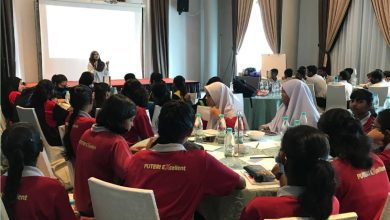

With increasing cases of children with allergies, Ipoh Echo spoke to Dr Cheong Hon Kin, KPJ Ipoh Specialist Hospital’s Resident Paediatrician (Neonatologist) to discover how to overcome and control allergies among babies and toddlers.
The new allergy epidemic is dominated primarily by food allergies from eggs and milk. As egg allergy is most often present at birth, there is a possible role of prenatal factors. Epidemiology suggests two theories that could answer the question of how children get allergies. First is the Hygiene Hypothesis and second is the Intrauterine Programming Hypothesis.
According to Dr Cheong, the Hygiene Hypothesis avers that children who have diverse gut flora, are vaginally born, lives in a farming environment, have older siblings, attended day care in the first year of life, have previous infection like Respiratory Syncytial Virus (RSV) and have been vaccinated, are less susceptible to allergies. In other words, this group of babies are protected against allergies.


Allergy symptoms often start with atopic dermatitis and food allergies and can be detected as early as 2 months old followed by asthma at 3 years old and allergic rhinitis at approximately 5 years old. Despite our advanced technology and advancement in the world of medicine, the only proven way to prevent allergies is in the form of supplementation of probiotics during pregnancy and in breastfeeding women and infants, which reduces the risk of eczema including atopic eczema that is common among infants. However, supplementation of probiotics is not proven to reduce the risk of other allergic diseases in children. There are ways to treat allergies like atopic eczema, asthma and allergic rhinitis. Parents can try weaning diet no later than 24 weeks old nor earlier than 16 weeks old in terms of allergy risk reduction.
Dr Cheong also discussed the role of breastmilk in minimizing allergies in children. Breastfeeding definitely is encouraged for all newborns as breast milk is rich in nutrients, probiotics and prebiotics. In non exclusively breastfed infants (formula fed infants), World Allergy Organisation (WAO) guidelines suggest that prebiotic supplementation has a role to play to reduce allergies.
Readers who are keen on learning more about allergies or other related medical issues among babies and children can set up an appointment with Dr Cheong Hon Kin at 05-2408777 (ext 8027) or visit his clinic at Suite 1-16, KPJ Ipoh Specialist Hospital, 26, Jalan Raja Dihilir, 30350, Ipoh Perak.


